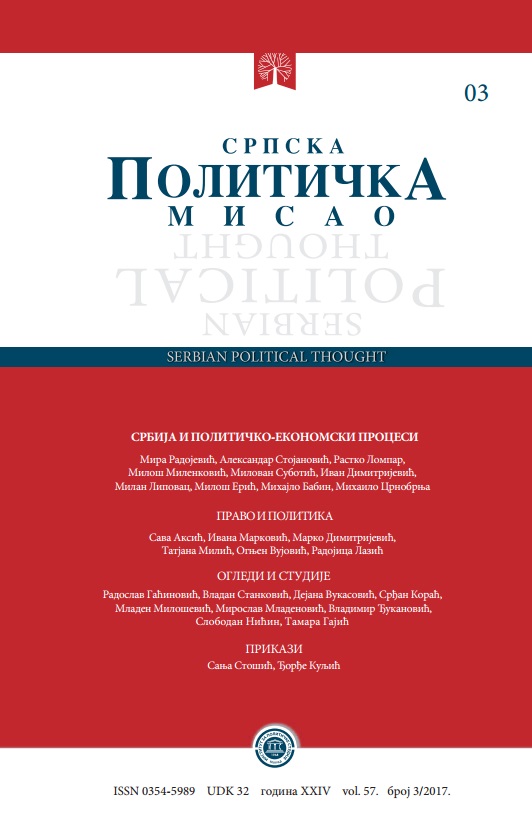Демократизација Србије путем већег учешћа жена у политици
Democratization of Serbia Through the Increased Participation of Women in Politics
Author(s): Slobodan Nićin, Tamara GajićSubject(s): Gender Studies, Government/Political systems, Politics and Identity
Published by: Институт за политичке студије
Keywords: democratization; elites; political participation; political representation; gender equality; the advancement of women; Serbia
Summary/Abstract: The underrepresentation of women in political life is a major global problem. Gender equality, as an essential precondition for building a democratic society, implies equal participation of women and men in all spheres of public life. The integration of the gender aspect in the key policy trends is an important part of the process of democratization in Serbia. Although the participation of women in political life in Serbia has increased in recent years, they still occupy lower and less influential position than men. Since the intensity of the complex process of democratization depends on the consensus of political elites on the subject of the necessity of reform, the paper was presented a number of political factors necessary for the advancement of women in public life. Since the realization of equal labor rights and elimination of all forms of discrimination contribute breaking the usual gender stereotypes, it can rightfully be concluded that the right level of emancipation of women is one of the main indicators of democratic society. The marginal role of women in politics for many years was considered as an insignificant question. Although women are always been excluded from political life, today their under-representation are considered a symptom of an unhealthy democracy and a deep crisis of political representation. Improving the status of women in public and political life depends on economic development, the existence of an appropriate legal framework, democratic institutions and the type of political culture, party and media culture, nature and structure of the electoral system, public opinion and social consciousness. However, the biggest impact comes from the political factors. In the first place, those are political parties that have a dominant role in the advancement of women in politics. Although the socio-political changes in Serbia contributed to certain positive developments in the field of women’s participation in political life, they still do not have enough opportunities to prove themselves in politics. Therefore, the main factors that hinder efforts to integrate women’s perspectives into the mainstream of public life are the lack of political culture of participation, transparency of political system and pluralism of opinions.
Journal: Српска политичка мисао
- Issue Year: 2017
- Issue No: 3
- Page Range: 323-339
- Page Count: 17
- Language: Serbian

